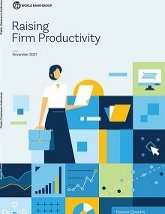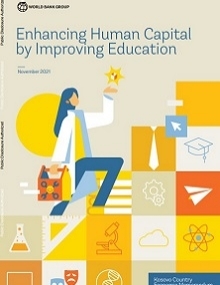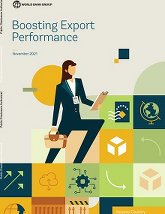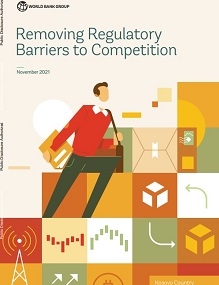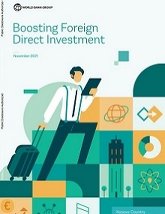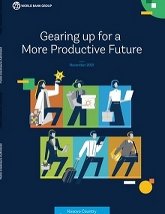
Kosovo Country Economic Memorandum 2022: Gearing Up for a More Productive Future
DOWNLOAD Report | Synthesis | Executive Summary | Slidedeck
In the last 25 years, per capita income in Kosovo has increased more than 10-fold from about US$400 in 1995 to over US$4,000 today. However, despite progress, per capita income is still only 12 percent of the average EU member state or 20 percent of aspirational peers. On current trends, Kosovo will only reach the income that its key aspirational peers have today in about thirty years’ time.
The COVID-19 pandemic has triggered Kosovo’s first ever recession in 2020. Like the rest of the world, COVID-19 pushed Kosovo into a deep recession in 2020, its first since independence. A prolongation of the pandemic has the potential to slow the pace of growth going forward and have a long-lasting impact on the economy, particularly by eroding human capital.
Lack of jobs is a major impediment to inclusive growth. Only 2 in 5 people of working age are participating in the labor market and 1 in 4 people can’t find a job. On a positive note, dynamism increased with 10,000 formal jobs added to the economy on average annually between 2015 and 2018, doubling 2011-2014 job creation.
And productivity in businesses and on farms is too low. Labor productivity is only a third of that of an average EU company and the average farm could produce the same amount of output using 70 percent less inputs. Business is dominated by small enterprises that often fail to grow and survive.
While spending on education has more than doubled, the quality of human capital needs to improve. Kosovo spends 4.6 percent of GDP and 16 percent of total government spending on education, similar to comparators. But only 23 percent of pre-school children are on track in terms of expected literacy and numeracy skills.
And barriers to women’s economic empowerment need to be lifted. Only 20 percent of women actively participate in the labor market. Women’s participation in the economy as entrepreneurs is also quite limited.
Proximity to major markets in Europe and a youthful population provide an opportunity for growth. Kosovo is one of the youngest countries in an aging Europe. Trade facilitation and logistics connectivity are getting better. Proximity to a large and affluent market, low taxes and labor costs, a resilient and liquid financial sector, and strong ties with its diaspora will help support growth.
Harnessed in the right way at the right time, Kosovo’s strengths could prove a catalyst for accelerating growth to achieve higher living standards. A package of reforms to (1) entrench macroeconomic stability and sound governance; (2) increase firm productivity; (3) raise farm productivity; (4) enhance human capital; and (5) boost exports, competition and private investment, especially foreign direct investment (FDI), could see Kosovo closing the gap with its aspirational peers much sooner.
Background papers
Based on detailed micro-data, this note examines the characteristics and recent evolution of firms in Kosovo, with particular attention to firm productivity.
Raising Agricultural Productivity
Igniting farm productivity can support growth and job creation in Kosovo. This note examines drivers of agricultural productivity and its growth in Kosovo, and implied constraints on growth of agriculture, using farm-level data.
Enhancing Human Capital by Improving Education
This note assesses pre-university education in Kosovo and identifies policies that can improve education quality and equity.
This background note examines export dynamics in Kosovo over the period 2010-19, benchmarking Kosovo against relevant comparator countries. It overviews Kosovo’s trade structure, export dynamics at the firm level, trade policy and regulatory framework, and constraints to trade in goods and services and identifies policy options for consolidating trade growth.
Removing Regulatory Barriers to Competition
Kosovo has made significant progress towards pro-competition regulation of product markets but there is still significant room for improvement.
Boosting Foreign Direct Investment
This note presents an ambitious reform agenda that can help improve Kosovo’s investment competitiveness and investor outreach. It presents a step-by-step reform program for unlocking the full potential of FDI for economic growth and job creation in Kosovo.

